|
Music Is The Healing Force Of The Universe The Inconsistency of |
|
|
||||||||||||||||
|
January 1 2024
A Little Late With This One Happy New Year! And we begin (in the style to which we’ve become accustomed) with something which should have been mentioned in the November update. Back in July last year I highlighted the Hat Hut release of More Lost Performances Revisited. At the time it was only available as a download from bandcamp, however, on November 3rd it was released on CD. |
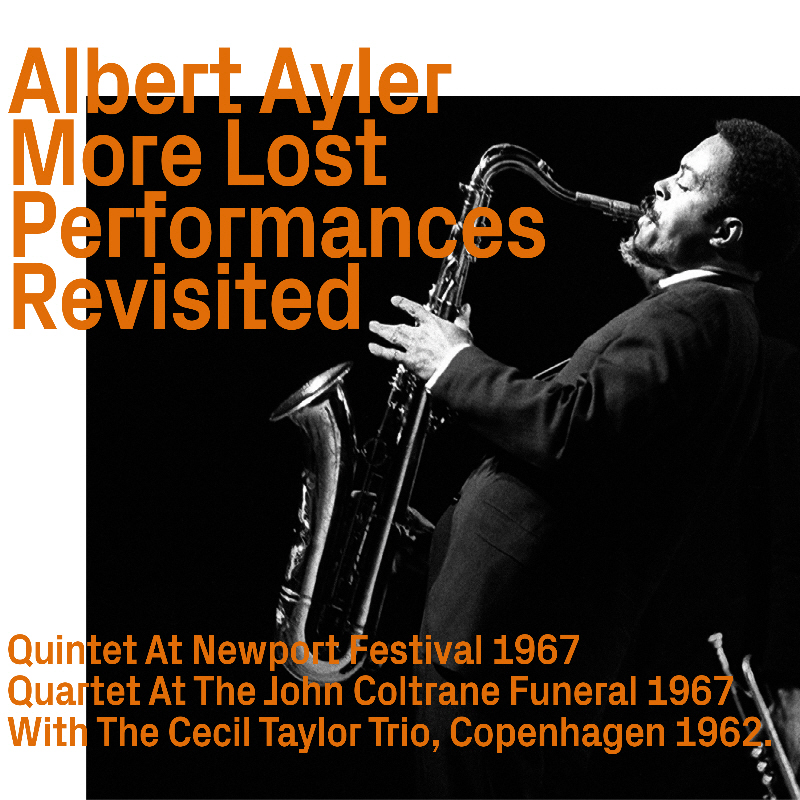 |
|||||||||||||||||||||||||||||||||||||||||
|
Dirk Goedeking let me know about a review of the album by Chris May on AllAboutJazz, which made me realise I’d forgotten to mention the CD release. The review includes the following description of the Cecil Taylor track: ‘The earliest track, from 1962, is the surviving audio from a lost film made by Danish television featuring Ayler guesting with the Cecil Taylor trio with alto saxophonist Jimmy Lyons and drummer Sunny Murray. The 21:27 track is Taylor's "Four." This is early Ayler and he is at his most raw and primal. The film crew must have wondered what had hit them, and it sounds like even Taylor is slightly taken aback as he follows Ayler's solo with his own. This was 1962 remember. The world was still in b&w, sex had not been invented, and jazz was not meant to frighten the horses, on television anyway. But nobody had told Taylor, much less Ayler.‘ Nice nod there to Philip Larkin, the old curmudgeon. I should also mention that More Lost Performances Revisited’s soulmate, Lost Performances 1966 Revisited, makes it into the list of Uncut’s Best Reissues & Compilations of 2023 at No. 28. And, while we’re on the subject of end of year lists, Love Cry gets a mention (in a job lot of Blue Note and Impulse! reissues) in John Kelly’s top 10 albums of 2023 on the RTE site. * Books Also win prizes and get some recognition, such as this certificate from the Association for Recorded Sound Collections: |
|||||||||||||||||||||||||||||||||||||||||
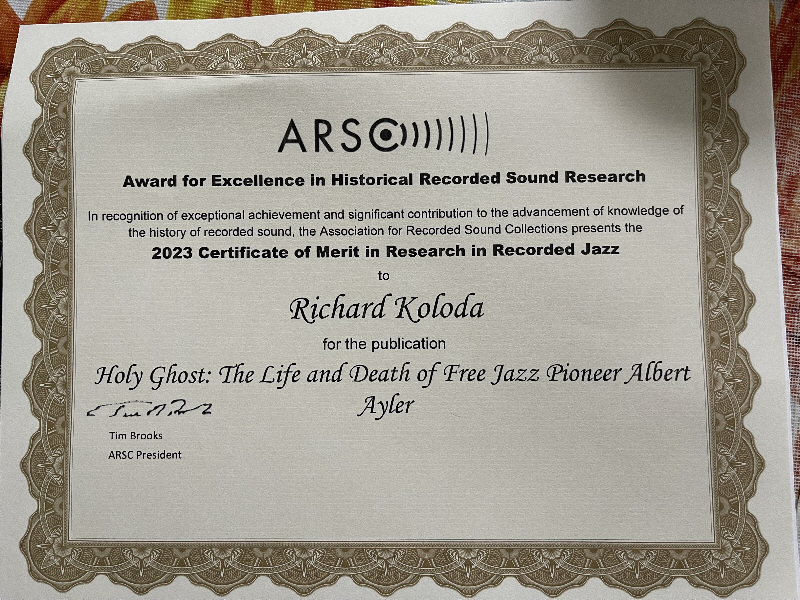 |
|||||||||||||||||||||||||||||||||||||||||
|
And, despite Alain Chauvat’s opinion, Emmanuel Clerc’s Albert Ayler: Vibrations, has also won a prize, from L’association Les Ponts Neufs, according to this article from Actualitté: ‘On Monday December 11, 2023, the Les Ponts Neufs association organized its fifteenth dinner at the Voyage de la Samaritaine restaurant, during which it awarded, for the first time, several literary prizes. The main prize was awarded to Dominique Bona for his book Les Partisans (editions Gallimard), a biography of Joseph Kessel and Maurice Druon, emblematic figures of the French Resistance. During this event, which brought together 150 guests under the large glass roof of La Samaritaine, Edouard Tétreau, president of Ponts Neufs, and Céline Laurens, representing the reading committee, also presented a first book prize to Emmanuel Clerc for Albert Ayler: Vibrations (editions Le Mot et le Reste), a work dedicated to the avant-garde musician.’ * A Miscellany Back to Dirk Goedeking: ... who is continuing his search for Ayler-related pet pictures ... |
|||||||||||||||||||||||||||||||||||||||||
 |
|||||||||||||||||||||||||||||||||||||||||
|
This was accompanied on Instagram by the following: "Walter and Monty follow me into my listening room and either fall asleep or patiently wait for the noise to end. They are gracious enough to let me take their picture with the album cover of the record I’m listening to at the time." If you’re a newcomer and wonder what that Ayler LP is, it’s an early French version of My Name Is Albert Ayler on the America label. ... has found someone else with a ‘Ghosts’ obsession ... Randall Roberts has a piece on Everything Jazz entitled “Haunted by Ghosts: Albert Ayler’s Obsession”, from November 2023, and Dirk fished out another one, from the previous November, on In Sheep’s Clothing Hi-Fi, entitled “Listening to Albert Ayler’s ‘Ghosts’ - many different ways”. The earlier piece includes several illustrations of ‘Ghosts’ - I don’t remember ever seeing this one from Lu Nóbrega:
|
|||||||||||||||||||||||||||||||||||||||||
|
... and in conclusion ... “In 2023 an Albert Ayler Xmas is still being celebrated, at least somewhere in Japan. |
|||||||||||||||||||||||||||||||||||||||||
 |
|||||||||||||||||||||||||||||||||||||||||
|
“And my wish for 2024 is still hidden in Maeght's vaults. While waiting, here's a photo of an original ticket. It’s for Sun Ra’s show, but the Ayler ticket probably looked the same.” |
|||||||||||||||||||||||||||||||||||||||||
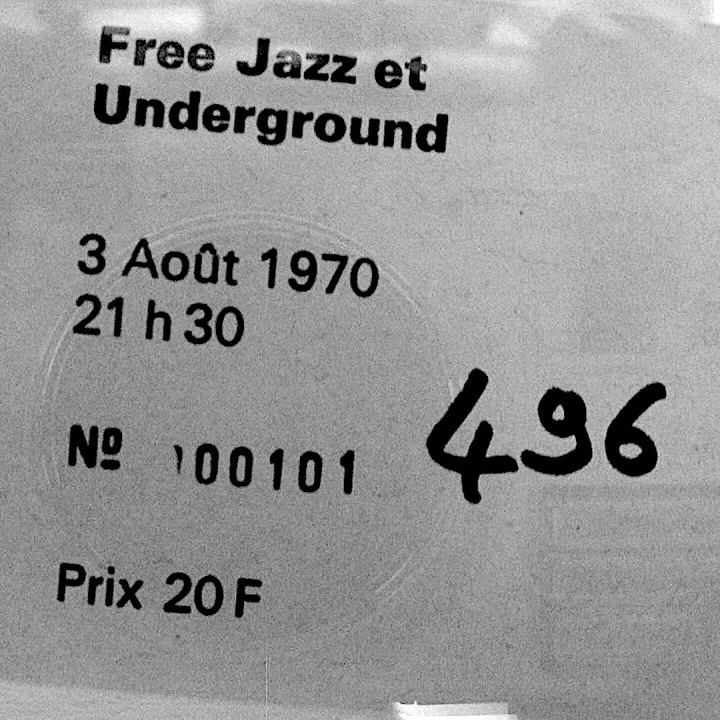 |
|||||||||||||||||||||||||||||||||||||||||
|
As did the audience. |
|||||||||||||||||||||||||||||||||||||||||
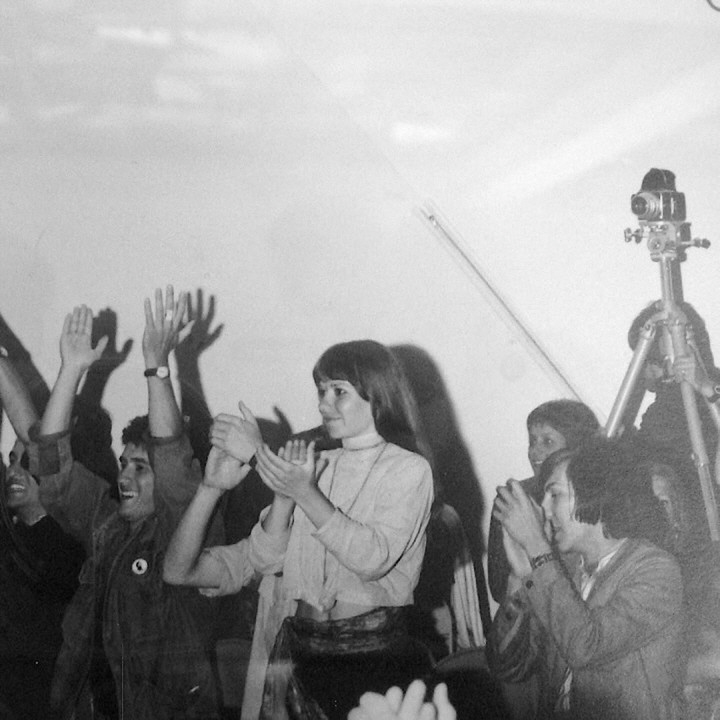 |
|||||||||||||||||||||||||||||||||||||||||
|
Two New Releases |
|||||||||||||||||||||||||||||||||||||||||
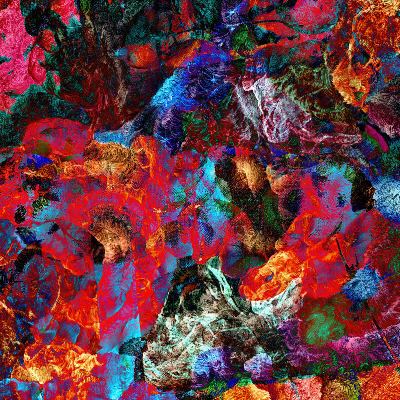 |
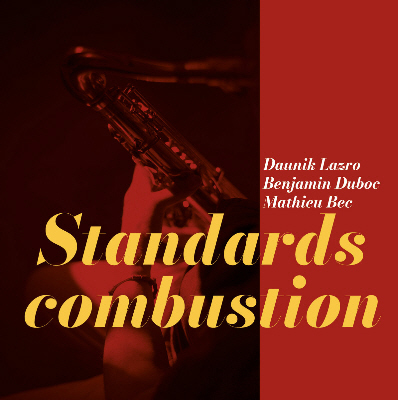 |
||||||||||||||||||||||||||||||||||||||||
|
Aves Raras by San Leo (“an Italian experimental rock duo”) includes ‘ALAY’, a four minute track dedicated to Albert Ayler. The album is available on bandcamp and there’s a review at Idioteq. Standards Combustion by the trio of Daunik Lazro, Benjamin Duboc and Mathieu Bec includes versions of ‘Ghosts’ and ‘Mothers’ and is available on bandcamp. Here’s ‘Mothers’ on youtube:
|
|||||||||||||||||||||||||||||||||||||||||
|
And finally ... Last month I finally got round to getting a hearing aid for my remaining ‘good’ ear, so this item on youtube does not really concern me but I thought I might as well give it a mention. The ensuing discussion ends with “e suona divinamente bene!” which Mr. Google translates as “and it sounds divinely good!”. ‘Nuff said.
|
|||||||||||||||||||||||||||||||||||||||||
|
What’s New October to December 2023 has been sent to the vaults. ***
February 1 2024
Not a lot going on Despite the manic activity in the real world (suddenly there is much talk of a third world war and consternation among the swivel-eyed loonies on GBNews that the new woke generation will all refuse to fight the Russian/Chinese/Moslem hordes as they invade our shores in their tiny dinghies) there’s not a lot happening in the world of Albert Ayler. Luckily I have this month’s email from Dirk Goedeking which includes the following: ‘When I first contacted you, it was because of the one and only sheet music collection on your page. Years later here’s one more transcription: “Spirits” by Lars Larsson, the guy who made the fabulous leadsheet of “Ghosts”.’ |
|||||||||||||||||||||||||||||||||||||||||
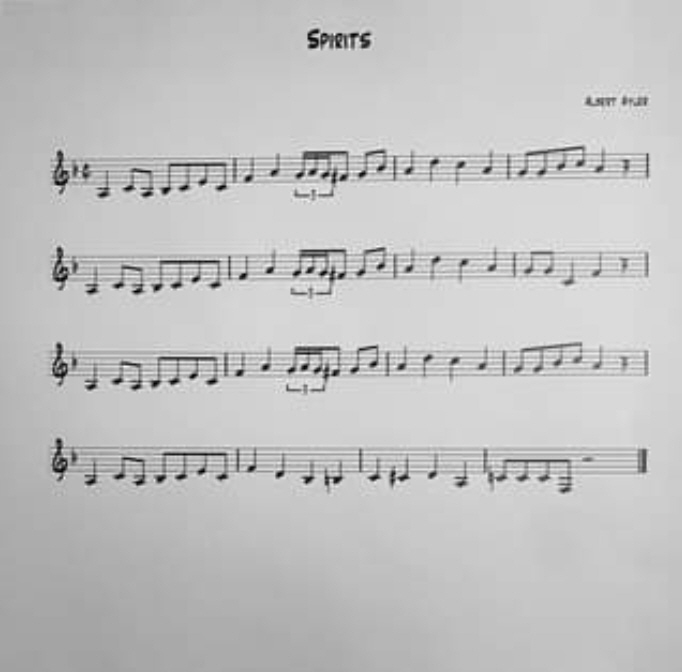 |
|||||||||||||||||||||||||||||||||||||||||
|
Dirk found this on the facebook Ayler Group page - Lars added the following note: ‘Spirits one of many wonderful tunes by Albert Ayler. The four last bars I don’t know if I’ve got it right.’ And another post on the Ayler Group page (from Barry Kermisch) sent us to the ‘fabulous Albert Ayler photo gallery at Heroes of Jazz.’ Which does have a good selection of Ayler photos, although I’m a bit dubious about this one: |
|||||||||||||||||||||||||||||||||||||||||
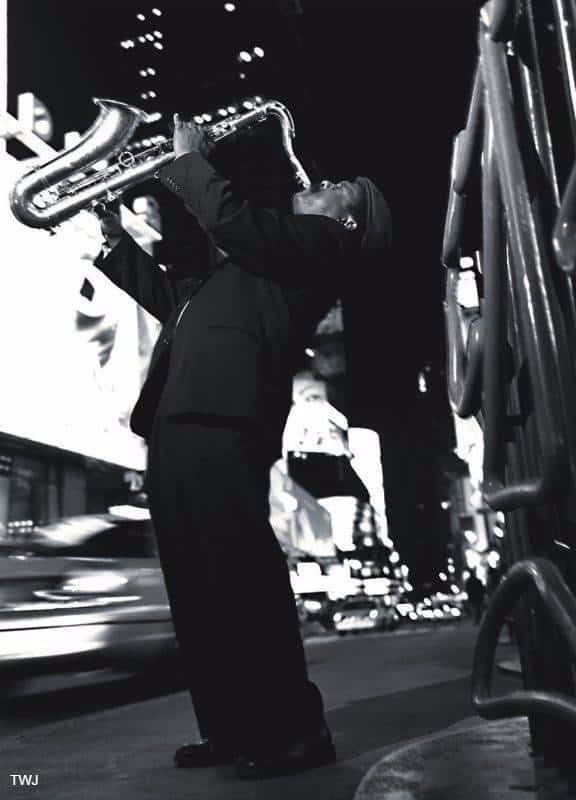 |
|||||||||||||||||||||||||||||||||||||||||
|
Granted, it’s an Aylerish stance, but where’s his beard? And he appears to be wearing a flat cap. Did Albert, renowned as a natty dresser, ever own a flat cap? I wear a flat cap, but I am from the North and it complements my whippet. I think this is another gentleman entire. Moving on to Dirk’s next ‘sheet music selection’: ‘A glimpse of an obscure transposition for Bb instruments by Oğul Köker from Istanbul: "Too lazy to notate the transposition...", he simply wrote letters below the notes of Larsson's "Ghosts".’ |
|||||||||||||||||||||||||||||||||||||||||
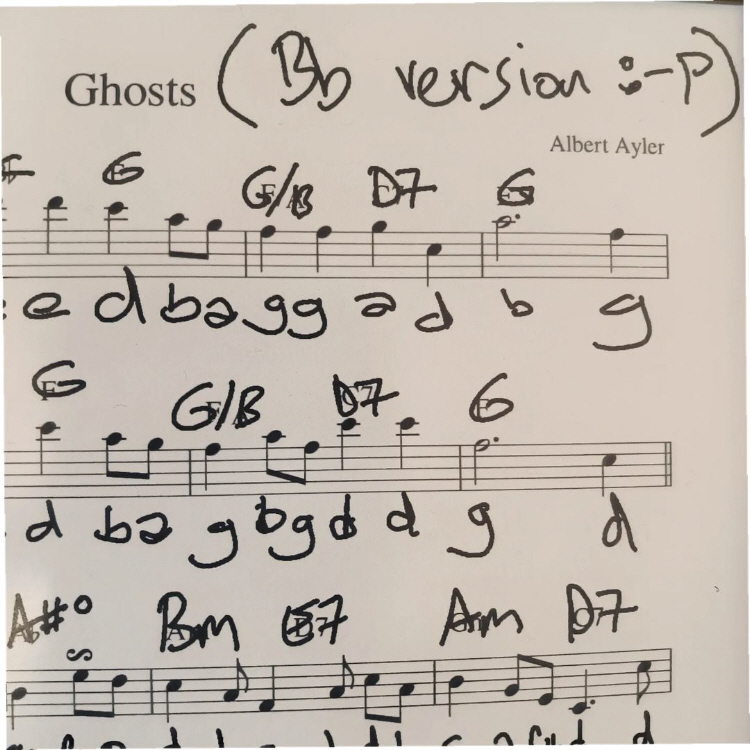 |
|||||||||||||||||||||||||||||||||||||||||
|
And finally . . . ‘A collage using sheet music by Dikko Faust and Ekkehard Jost (obviously taken from your site), used to promote David Colosi's Clock Tower radio show (What's New, 09-2016).’ |
|||||||||||||||||||||||||||||||||||||||||
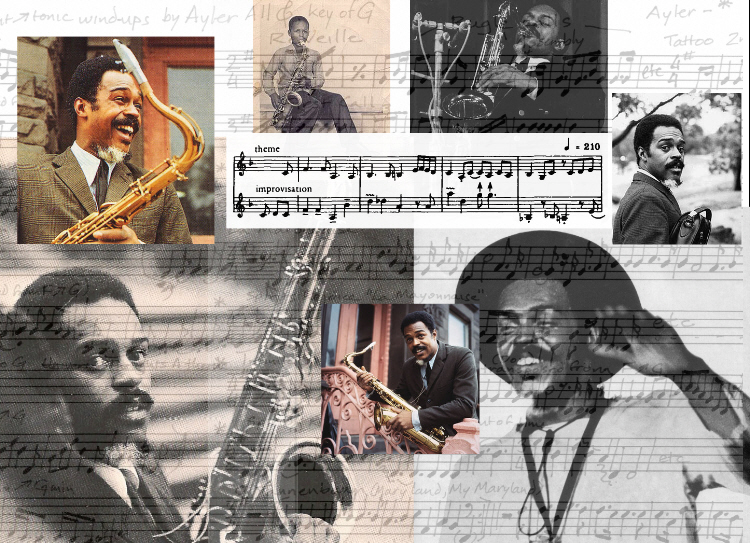 |
|||||||||||||||||||||||||||||||||||||||||
|
Dirk also let me know about a poem by Sean Murphy, ‘Albert Ayler’s Vision’, published on the Decolonial Passage. Here’s an extract from facebook: |
|||||||||||||||||||||||||||||||||||||||||
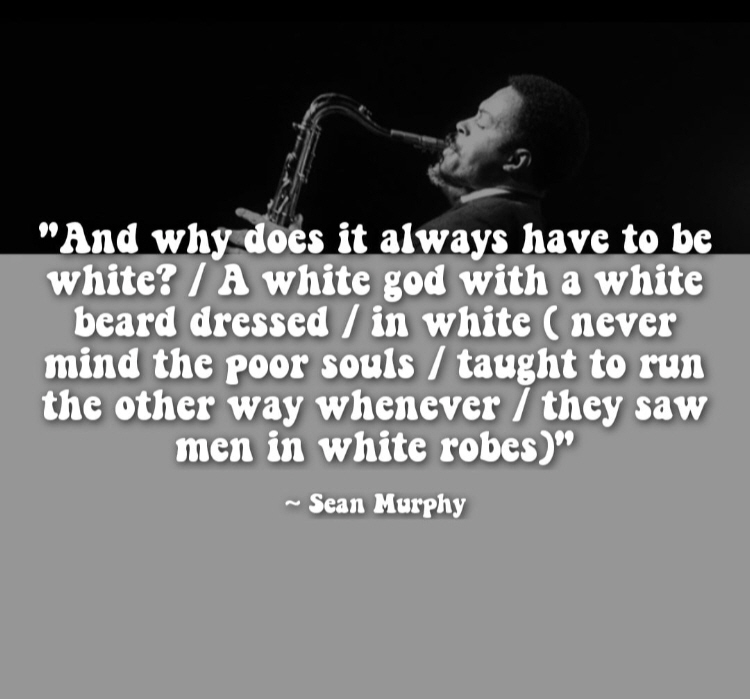 |
|||||||||||||||||||||||||||||||||||||||||
|
And as Dirk puts it: ‘— against any winter depression: “Ghosts” in a joyous organ version. It belongs to the soundtrack of Shinji Aoyama’s film “Sad Vacation” from 2007.’
|
|||||||||||||||||||||||||||||||||||||||||
|
And here’s a trailer:
|
|||||||||||||||||||||||||||||||||||||||||
|
Dirk’s final suggestion went a bit wrong. Here’s the picture: |
|||||||||||||||||||||||||||||||||||||||||
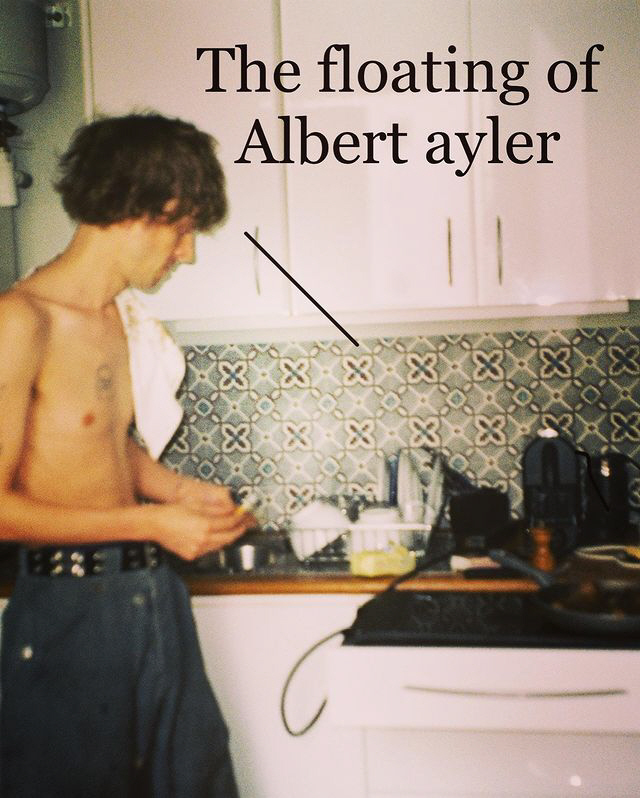 |
|||||||||||||||||||||||||||||||||||||||||
|
‘“The Floating Of Albert Ayler” is a tribute by British singer and guitarist Saul Adamczewski. I wonder where he's looking at: Albert floating in the dishes, the coffee machine, ...?’ Saul adds this explanation (seems he’s seen the Kasper Collin film): ‘Albert Ayler jumped into the east river and drowned on the 5th of November 1970. He did this believing it was the only way to save his brother from the mental illness that was destroying him. He also thought that staring into the sun until he went blind would be helpful. So its probably fair to say he was a little odd. either way his music is from another universe and that’s probably where he ended up. So I used samples from his playing to make this piece. A homage to Gavin Bryars’ the sinking of the titanic. I imagine Albert’s music still floating around somewhere in the filthy east river.’ Expectations suitably raised and all agog, I click the link to the music and there’s nothing there. Although I did follow a link to bandcamp and this very scary ‘version’ (maybe not) of ‘Ghosts’ by Silby und Saul. |
|||||||||||||||||||||||||||||||||||||||||
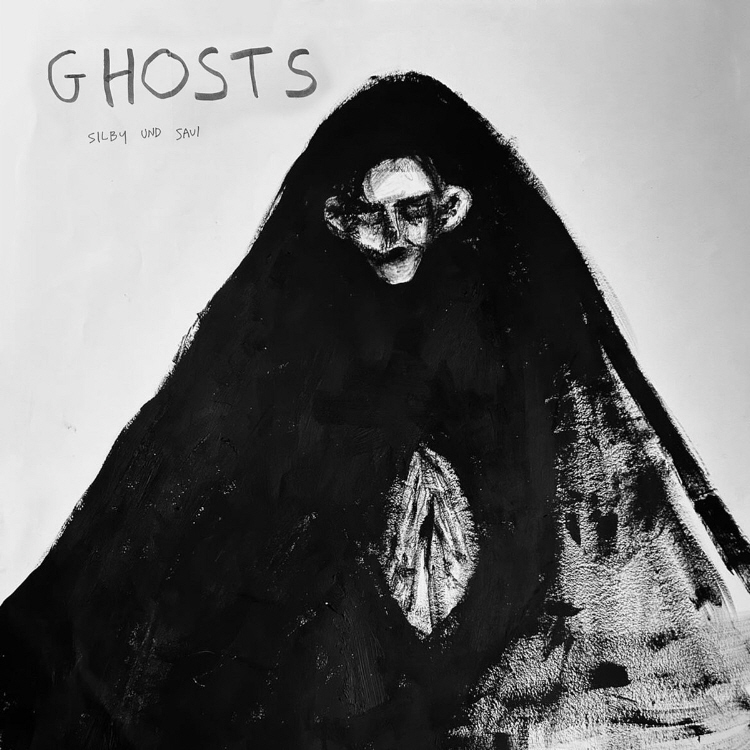 |
|||||||||||||||||||||||||||||||||||||||||
|
However, there was another link to ‘The Floating Of Albert Ayler’ (which also didn’t work) on the soundcloud site. That’s a weird site. I searched for ‘Albert Ayler’ and got a load of stuff, including a lot of those ‘Teatime with Albert’ versions of My Name Is Albert Ayler, and things got steadily weirder the further down the list I went. But it did throw up a couple of items worth a mention. This is ‘Albert Ayler Sailaway (Damn These Blues)’ by the Todd Harrold Band. It’s from the album Mr. Whatever, which I’ve had listed on the Tributes page for years but I’d never heard the track till now - it’s worth listening to the lyrics - the infamous jukebox gets a mention.
|
|||||||||||||||||||||||||||||||||||||||||
|
And then there’s this: |
|||||||||||||||||||||||||||||||||||||||||
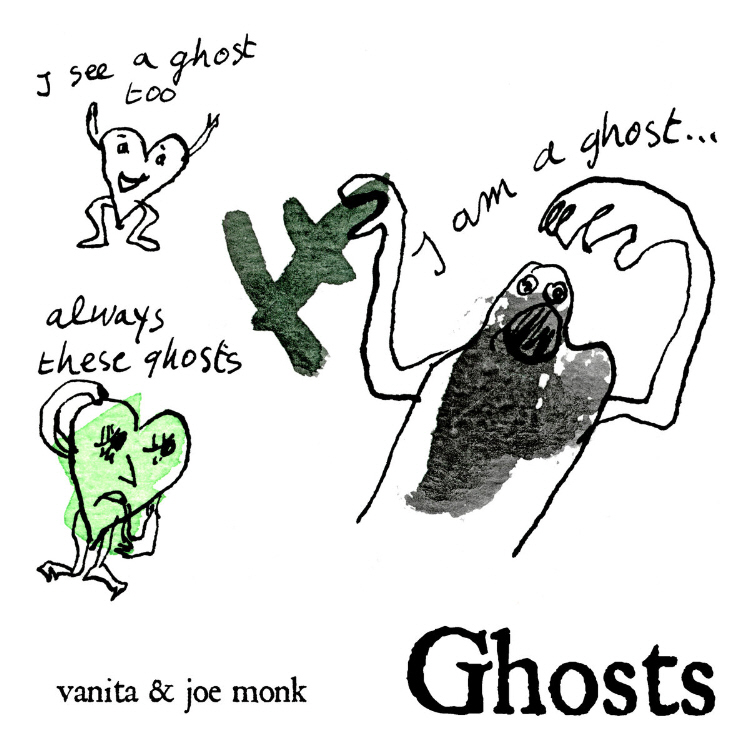 |
|||||||||||||||||||||||||||||||||||||||||
|
I don’t know whether this is a reaction to all the versions of ‘Ghosts’ out there or it’s just another addition to the crowd. It is available on bandcamp and there’s plenty of videos of the Monks on youtube. As the Legendary Lonnie once said on his Radio Stoke programme after playing a track by Enigma, “I love them monks.” ’nuff said. * The only thing of real merit I've brought to the party (and it has little to do with Albert Ayler) is this item from The Seattle Times. This is for all those people of a certain age who rushed out to buy the BYG double LP sampler, and played the first track on Side 3 and were completely wiped out by the guitar stylings of Sonny Sharrock, and even more by the vocal gymnastics of his wife, Linda. Sonny died in 1994, and this is what happened to Linda.
|
|||||||||||||||||||||||||||||||||||||||||
|
grahambyrd6012 commented on the above 2 months ago: 'This played at my place of work today. If only I could invent a time machine to go back and destroy this atrocity before it was printed on vinyl. Absolute torture and audible garbage.' "O foolish people, and without understanding; which have eyes, and see not; which have ears, and hear not." ***
March 1 2024
Bordeaux again Many thanks to Pierre Mons for tracking down a review of the Ayler Quintet’s performance at the Sigma Festival in Bordeaux in the Sud Ouest newspaper of 15th November, 1966. Richard Koloda referred to the review in Holy Ghost; The Life & Death of Free Jazz Pioneer Albert Ayler: Reviewing Ayler’s slot in the newspaper Sud-Ouest, M.-C. Icre wrote, ‘It squeaks, it squeals, it screams, it screeches, it blows, it smokes: it plays the buffoon! The Albert Ayler quintet lashes out: collective madness at its paroxysm. It is, as it seems, “free jazz.”’ Questioning ‘the lack of formal, rhythmic and harmonic research’ in the music, Icre did not know whether the music was destroying jazz, or reinventing jazz by abusing it. Here’s the original review: |
|||||||||||||||||||||||||||||||||||||||||
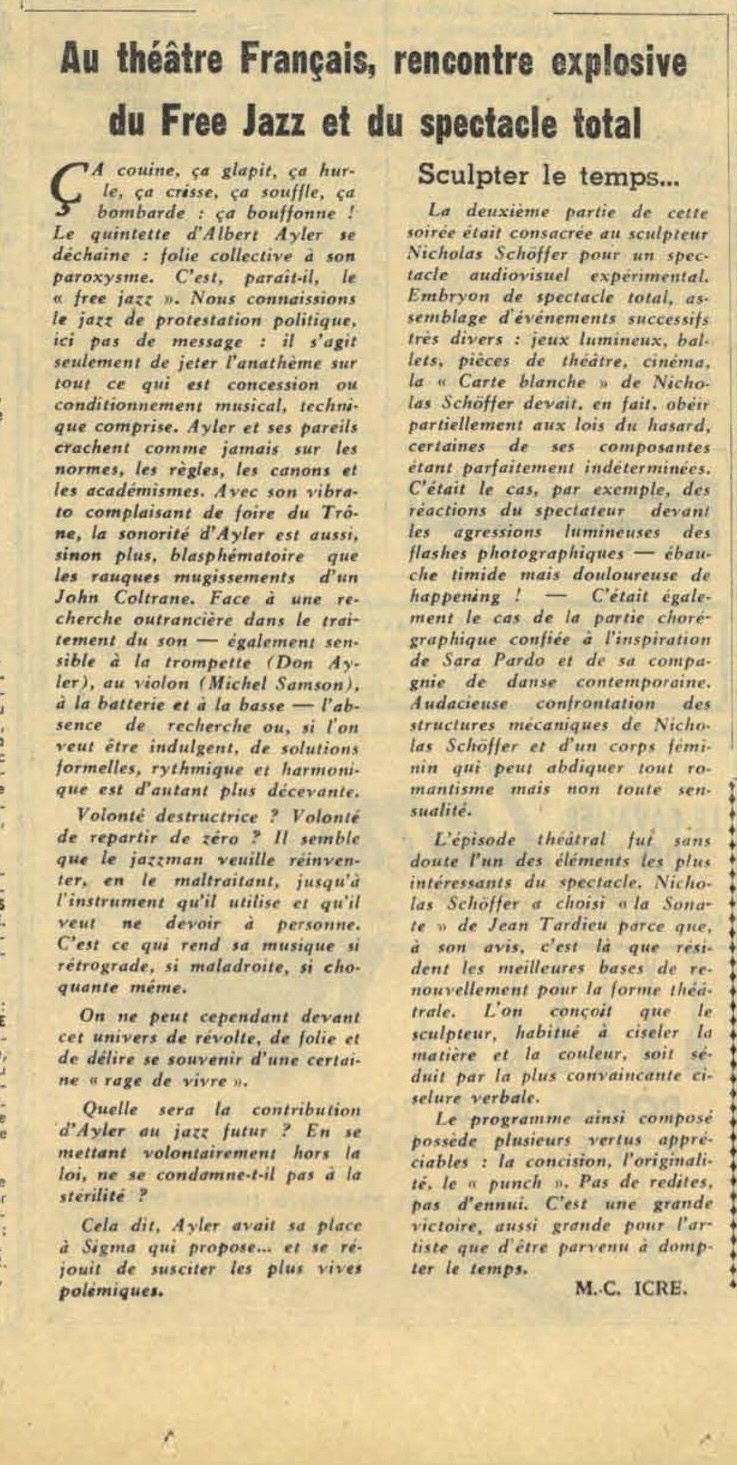 |
|||||||||||||||||||||||||||||||||||||||||
|
And here’s the English translation courtesy of Monsieur Googlé: At the French Theater, explosive encounter IT squeals, it yelps, it screams, it squeals, it blows, it bombs: it hums! Albert Ayler's quintet is unleashed: collective madness at its peak. It is, it seems, “free jazz”. We knew the jazz of political protest, here no message: it is only a question of anathema to everything that is concession or musical conditioning, technique included. Ayler and his ilk spit like never before on norms, rules, canons and academicisms. With his self-indulgent Trane vibrato, Ayler's sound is as, if not more, blasphemous as the hoarse bellowing of John Coltrane. Faced with outrageous research in the treatment of sound - equally sensitive to the trumpet (Don Ayler), the violin (Michel Samson), the drums and the bass - the absence of research or, if we want to be lenient , formal, rhythmic and harmonic solutions is all the more disappointing.
Sculpting time... The second part of this evening was devoted to the sculptor Nicholas Schöffer for an experimental audiovisual show. Embryo of total spectacle, assembly of very diverse successive events: light games, ballets, plays, cinema, Nicholas Schöffer's "Carte blanche" had, in fact, to partially obey the laws of chance, some of its components being perfectly indeterminate. This was the case, for example, of the spectator's reactions to the luminous attacks of photographic flashes — a timid but painful outline of a happening! — This was also the case for the choreographic part inspired by Sara Pardo and her contemporary dance company. Audacious confrontation of the mechanical structures of Nicholas Schöffer and a female body which can abdicate all romanticism but not all sensuality. M. C. ICRE. So now we get another chance to post the video clip from the concert:
|
|||||||||||||||||||||||||||||||||||||||||
|
A couple more from youtube A visit to youtube usually comes towards the end of the monthly update, but I was particularly taken with this version of ‘Angels’ by the Puhti Trio.
|
|||||||||||||||||||||||||||||||||||||||||
|
More information about the Puhti Trio, who hail from Finland, is available here, and full details of their album, Sammal, here. |
|||||||||||||||||||||||||||||||||||||||||
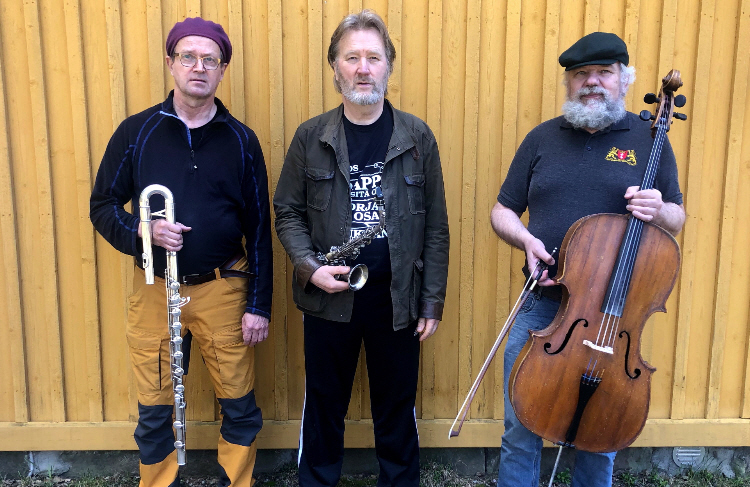 |
|||||||||||||||||||||||||||||||||||||||||
|
Another thing on youtube which caught my eye, but I think my mind threw it back, is a brief lecture on ‘Improvisation and Dreaming: Comparing These Intriguing States of Mind and Brain’. Here’s the accompanying blurb, and Albert gets a mention, as do several others, which, I admit, did keep me watching. ‘In this program, we compare dreaming and improvisation focusing on creative synergies, experiential similarities, and the underlying neurophysiology. These states of mind are mutually illuminating. That is, learning about one provides insights into the other. A key insight here is that we can deepen our understanding of improvisation by exploring other states of mind that have overlapping experiential qualities or brain states. In his book Dreams of Awakening, Charlie Morley writes that “... there are many different ways to tell the difference between [different states of experience], but the easiest way to get to grips with these differences is to spend as much time as we can in these states.” I propose that this is the case for improvisation, as well. By paying more attention to our dreaming experiences, we may deepen our knowledge of the experience of improvisation.’
|
|||||||||||||||||||||||||||||||||||||||||
|
Discographical Corner Dirk Goedeking came across a couple of old Ayler releases on cassette. The first is fairly random, the Impulse compilation, - Fire Into Music: Volume III - which includes ‘Change Has Come’ from In Greenwich Village. |
|||||||||||||||||||||||||||||||||||||||||
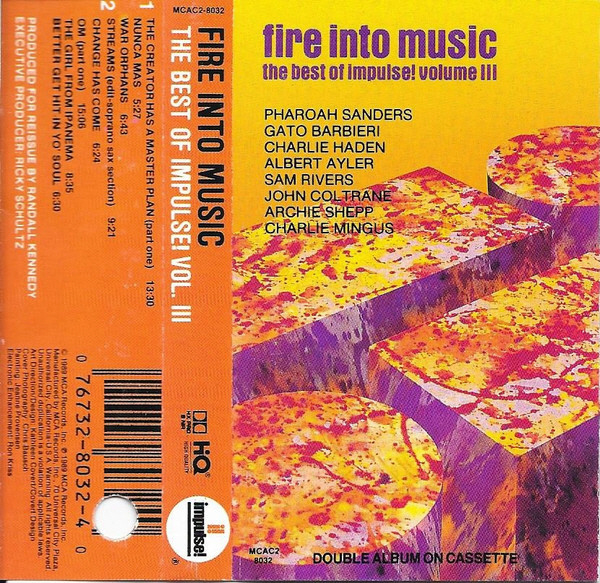 |
|||||||||||||||||||||||||||||||||||||||||
|
But the other one is very odd. |
|||||||||||||||||||||||||||||||||||||||||
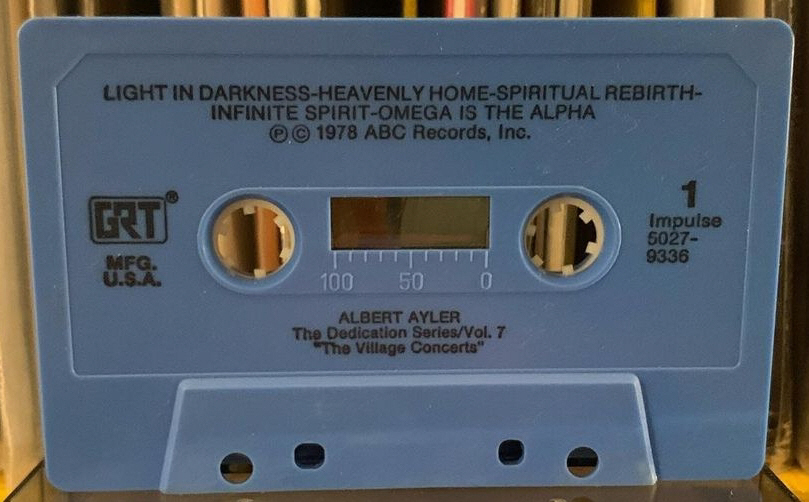 |
|||||||||||||||||||||||||||||||||||||||||
|
This could just be me, but I’ve always considered the ‘sequel’ to In Greenwich Village, The Village Concerts, to be fairly rare. Probably just because I found a copy at a Record Fair in Burslem (in fact, if memory serves - which, these days it doesn’t - there were 2 copies and friend Clive got the other one), which seemed overly serendipitous at the time. Of course it was superseded by the CD release of Live In Greenwich Village: The Complete Impulse Recordings, but whereas In Greenwich Village seems to have achieved cult status and is treated to vinyl re-releases, its companion volume tends to be ignored. So, to find that it was available on cassette (and, consulting my own discography, 8-track cartridge) strikes me as weird. Here’s the cover: |
|||||||||||||||||||||||||||||||||||||||||
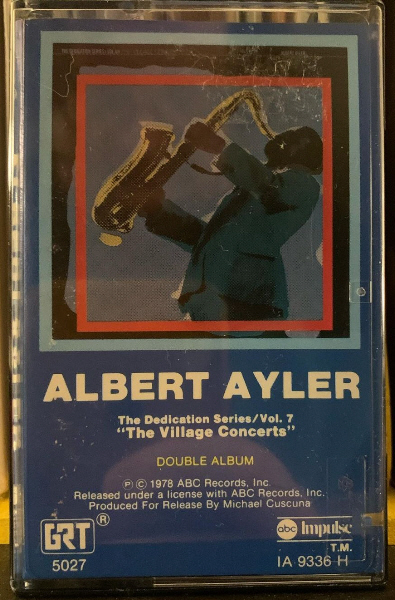 |
 |
||||||||||||||||||||||||||||||||||||||||
|
Some drawings Dirk sent me some drawings. The first, from a Japanese site, is a rough sketch of the original cover of My Name Is Albert Ayler. Exploring further I found New Grass and Swing Low Sweet Spiritual. Not quite sure what was going on I wondered if google translated Japanese. Unfortunately it did, and at that point I thought it best to leave the mysterious east alone. |
|||||||||||||||||||||||||||||||||||||||||
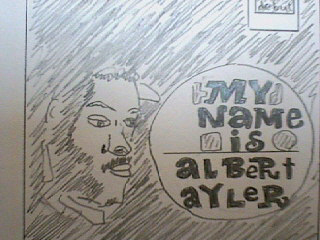 |
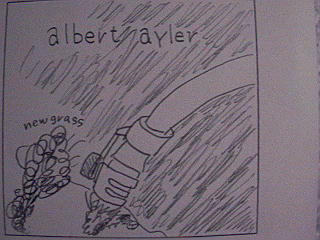 |
||||||||||||||||||||||||||||||||||||||||
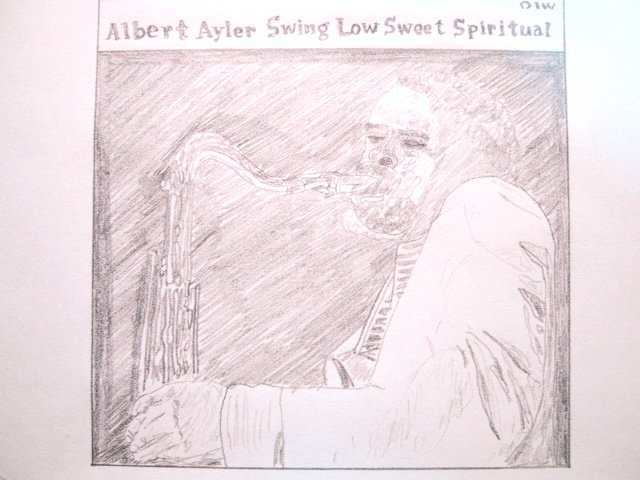 |
|||||||||||||||||||||||||||||||||||||||||
|
Then there’s this from Italy. Albert says: “In the recording studio, I try to break the boundaries between the known and the unknown, between music and spirit.” |
|||||||||||||||||||||||||||||||||||||||||
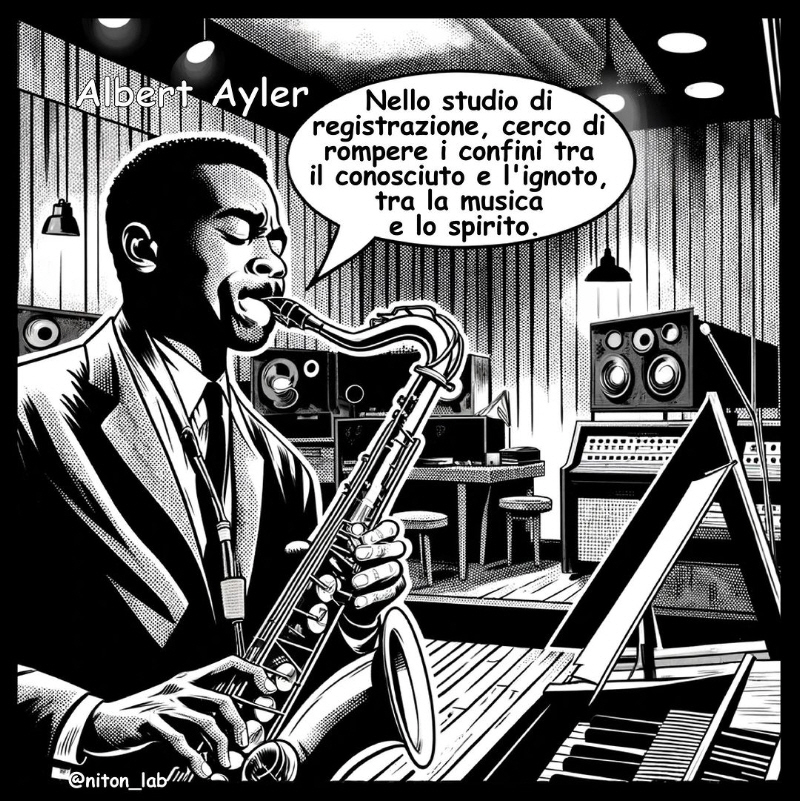 |
|||||||||||||||||||||||||||||||||||||||||
|
The picture is accompanied by the following blurb: “For Albert Ayler the recording studio is a means of spiritual knowledge, it is no coincidence that his most important album is called "Spiritual Unity", which is also the one we recommend.” ‘We’, being the Nitön Lab Studios in Barrasso, Italy, where you’ll also find some similar drawings of the great and the good - including Eddie Cochran - nice to see him getting a nod. And finally, this |
|||||||||||||||||||||||||||||||||||||||||
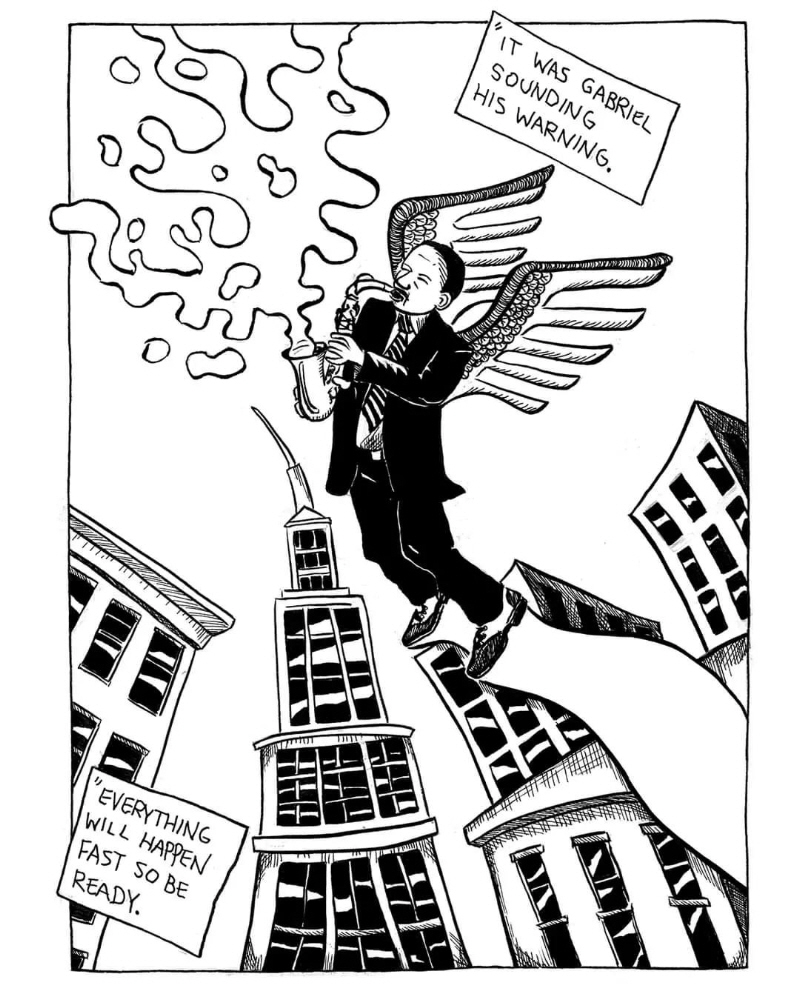 |
|||||||||||||||||||||||||||||||||||||||||
|
from Dean Westerfield’s magnum opus, "Visions of Albert Ayler", which he’s been working on for years now. This page is accompanied by this comment: ‘Laying out and adjusting pages of my book, Visions of Albert Ayler. Words by Albert Ayler. That is Charlie Parker playing the part of the Arch Angel.’ This is another page, accompanied by this comment: ‘Here is a favorite page from my book, Visions of Albert Ayler. This is page 114. I'm still laying out and adjusting pages but getting closer to the end.’ |
|||||||||||||||||||||||||||||||||||||||||
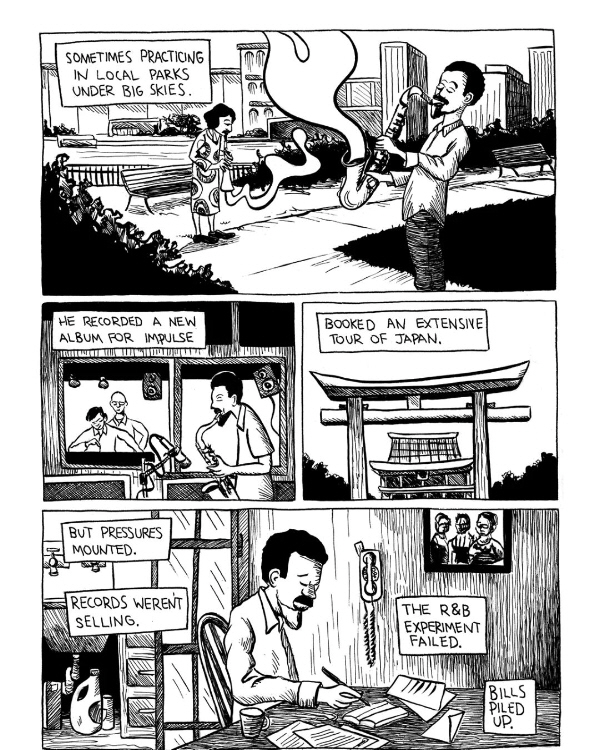 |
|||||||||||||||||||||||||||||||||||||||||
|
I’m still not sure about that tour of Japan. Anyway, we end with another of Dirk’s finds, a poem on The Paris Review site by Terrance Hayes, ‘Terrance Hayes’s Soundtracks for Most Any Occasion’ has this introduction: When we asked Terrance Hayes to make a playlist for you, our readers, he wrote us a poem. Of course he did. As Hayes told Hilton Als in his Art of Poetry interview in our new Fall issue, formal constraints offer him “a way to get free.” Many of Hayes’s poems derive their titles from song names and lyrics; others are influenced by the mood of a particular album or track. Music, he tells Als, “changes the air in the room.” This particular playlist-poem has a track for almost any kind of air—or room—you might find yourself in this week.’ Of interest here, is the line: Soundtrack for standing in line for groceries: “A Man Is Like A Tree” by Albert Ayler Come to think of it, that’s probably all it’s good for. |
|||||||||||||||||||||||||||||||||||||||||
|
*** News from 2004 (January - June) 2004 (July - December) 2005 (January - May) 2005 (June - December) 2010 (January - June) 2010 (July - December) 2011 (January - May) 2011 (June - September) 2011 (October - December) 2012 (January - May) 2012 (June - December) 2013 (January - June) 2013 (July - September) 2013 (October - December) 2014 (January - June) 2014 (July - December) 2015 (January - May) 2015 (June - August) 2015 (September - December) 2016 (January - March) 2016 (April - June) 2016 (July - August) 2016 (September - December) 2017 (January - May) 2017 (June - September) 2017 (October - December) 2018 (January - May) 2018 (June - September) 2018 (October - December) 2019 (January - May) 2019 (June - September) 2019 (October - December) 2020 (January - April) 2020 (May - August) 2020 (September - December) 2021 (January - March) 2021 (April - July) 2021 (August - December) 2022 (January - April) 2022 (May - August) 2022 (September - December) 2023 (January - March) 2023 (April - June) 2023 (July - September) 2023 (October - December) 2024 (April - June) 2024 (July - September) 2024 (October - December) 2025 (January - March)
|
|||||||||||||||||||||||||||||||||||||||||
|
Home Biography Discography The Music Archives Links What’s New Site Search
|
